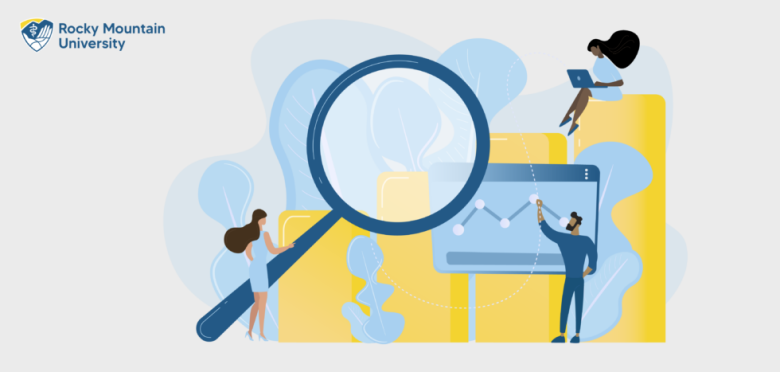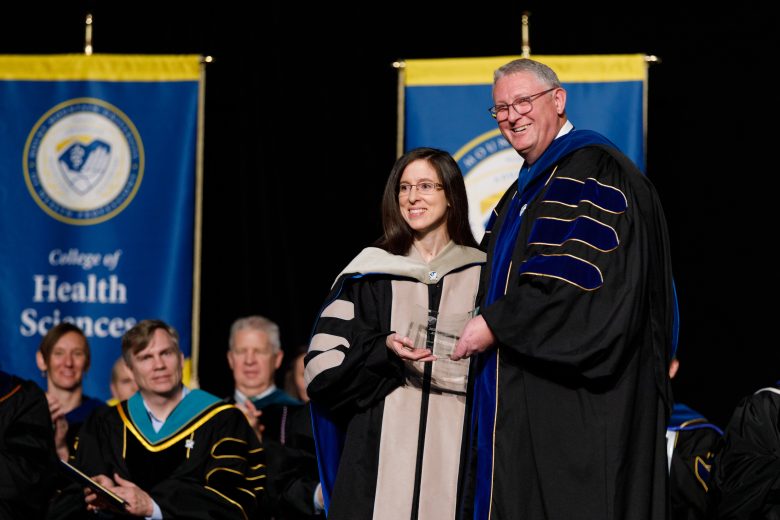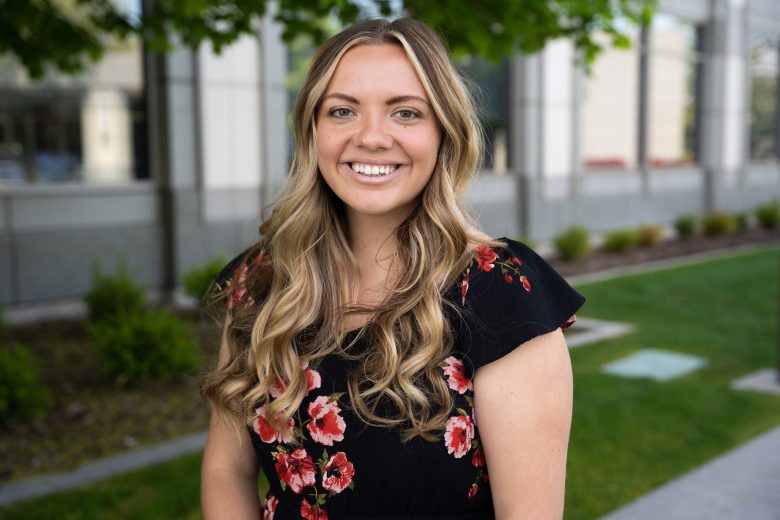Mike Cheesman, PA-C, ATC, was the head athletic trainer (AT) for a program that was expanding at a remarkable rate. In 2015, he decided to pause his career to enroll in the Master of Physician Assistant Program (MPAS) at Rocky Mountain University of Health Professions (RMUoHP).
Changing Directions
After working as an AT for eight years, Cheesman felt he wanted to do more with his career but wasn’t sure what he wanted to do. “I started working with an orthopedic physician assistant (PA) with my athletic training program, and after many discussions about the PA profession, she solidified that becoming a PA was the direction my career path was supposed to take.”
But it wasn’t easy to give up his eight-year career as an athletic trainer and uproot his family. “Making the decision to change professions was not an easy decision for me and my family,” Cheesman explains. “Altering my career path was a huge leap of faith…It took determination, perseverance, and planning for years in order to solidify that I was making the right choice.”
But Cheesman knew he made the right decision when he came to campus. “The feeling I got once I stepped onto campus solidified that RMUoHP was the right place for me. From the exciting educational outlook to the gorgeous landscape of Central Utah, RMUoHP felt like it was destined for me to advance my career as a PA.”
Finding Successes as a PA Student and Professional
The MPAS program was very demanding, but Cheesman found success in a variety of ways. “Successes as a student came in many forms. Some were major events like receiving an education fellowship from the Physician Assistant Education Association and others were as simple as passing a tough exam in cardiology or women’s health that I thought I flunked. Those types of success definitely gave me the confidence and encouragement that I needed to keep pushing me toward the end goal of being successful within the PA program.”
Cheesman’s successes throughout the MPAS program continued after graduating. He accepted a job at a primary care office that served patients ranging from newborns through geriatrics. “I built great working relationships with my coworkers and developed rapport with my patients that fulfilled my desire to assist others with their health needs,” said Cheesman.
Returning to His Roots
After working in the primary care office for two years, Cheesman was presented with the opportunity to return to the hospital in his hometown where he had started their athletic training program and worked prior to becoming a PA. The new position, where he currently works, is working as a PA within their orthopedic department, where he has a busy schedule seeing patients as well as assisting the orthopedic surgeon in the operating room. With the new position and the return to his hometown, Cheesman says, “I am now able to again assist the athletic training program in developing it and also mentoring and overseeing the certified athletic trainers. Being able to join the collaborating team within that hospital setting has given me the opportunity to be involved with both professions again.”
Greatest Professional Accomplishment
Since becoming a PA, Cheesman has seen a lot of success. “My greatest professional accomplishment to date would be becoming an assistant medical director to the athletic training program that I developed and initiated as an entry-level athletic trainer. It may not seem like much, but being able to say that I started the outreach AT program at my local hospital, went back to school to become a PA, and then came back to that same hospital to work as a PA and assist in the AT program I helped create gives me this huge sense of accomplishment.”
He adds, “Since graduating, I have had the privilege of treating over 10,000 patients to date, assisting in over 150 surgeries, precepting 6 students, volunteering over 150 hours of covering sporting events, and much more.”
Cheesman says that those opportunities and success “bring great pleasure because I am able to help others and make a positive impression in their lives, but most of all, I am to provide care where care is needed. That is what being a healthcare professional is all about.”



